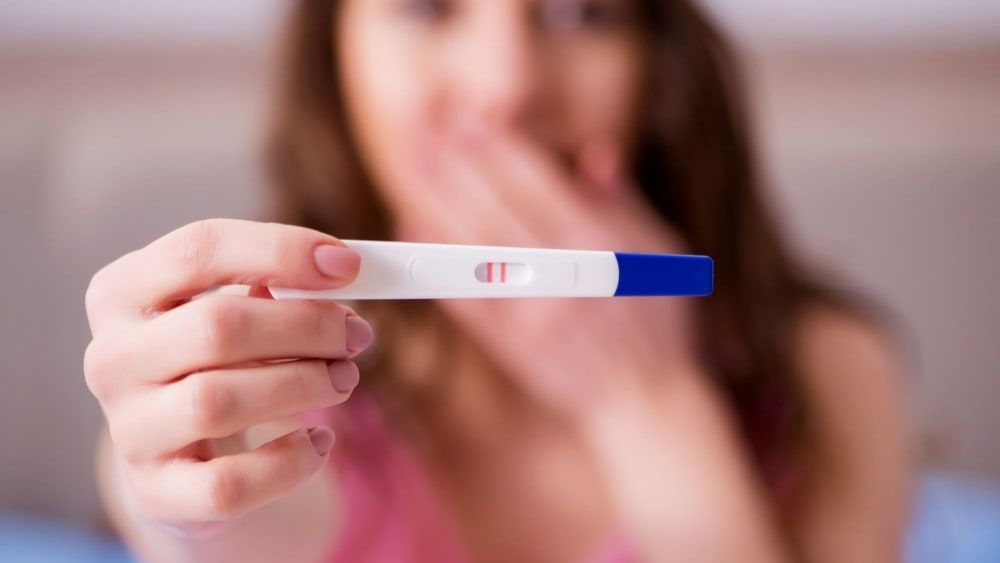After Intercourse Why Sperm Flow Out?
To understand this, one needs to know the difference between sperm and semen. Semen is a liquid ejaculated from the penis. Sperm cells are found in semen and fertilize a female egg.
So, after intercourse, why does sperm flow out? After ejaculation, sperm physiology suggests that about 35% of sperm from semen travels to the cervix. As per research, sperm reaches fallopian tubes in less than a minute. Excess sperm remains in the vagina, which flows out or leaks out after a few hours or few minutes. This is very normal. It accompanies a lot of non-sperm material (proteins, vitamins). The fastest sperm makes its way to the cervix and can result in fertilization.
Can you still get pregnant if the sperm comes out?
Can you still get pregnant if the sperm comes out? Yes. Even if semen or sperm comes out of the vagina- you may get pregnant. Sperm discharge from the vagina after unprotected sex is entirely normal. If you are trying to conceive, the sperm discharged barely contains any ejaculate and will not hinder the chances of pregnancy.
If you are not looking to conceive, even if sperm comes out hours later, some amount is still present in your vagina. Hence, there are quite a few chances you may get pregnant. In such cases, protected, safe sex is the way forward.
How many drops of sperm are needed to get pregnant?
Studies say that while ejaculating, a man may produce semen ranging between 2ml to 5ml. 1 ml of semen contains about 20 million sperms. However, it takes only one sperm to fertilize an egg and get pregnant.
Why does sperm come out hours later?
Why does sperm flow out after intercourse? Sperm leakage, if there is enough of it, can be expected even hours after intercourse. Sperm can even come out the next day, in specific cases.
Semen immediately enters the uterus after intercourse. But how long can sperm live inside you to get pregnant?" Sperm can be alive inside a woman's body for up to 5 days. A large amount of sperm is present in semen, and only one helps the process of fertilization. Only that sperm travels through the cervix, whereas the leftover sperm exit through the vaginal canal.
Also read: Panty Liners: Benefits And How To Use
Can a girl push sperm out and not get pregnant?
If sperm has entered the cervix, then scientifically, it cannot be flushed out. However, there are some myths about removing sperm out from the body. Let's have a look at them:
#1 Urinating just after the intercourse
Some believe that peeing after sex would flush out semen from the body. So does urine flush out sperm? No. Urinating after sex does help with conditions like Urinary Tract Infections but does not flush semen out of the body. It is because a woman urinates through the urethra, and sperm enters your vaginal tract. These are two different openings. So, even if you pee seconds after having sex, it won't affect your chances of getting or not getting pregnant.
#2 Douching after intercourse
Can you get pregnant if you wash out the sperm? Yes. Douching is cleaning your vaginal area with water or other liquids. Some women believe that douching is a convenient birth control method. However, this is untrue. Douching is a non-reliable method of birth control. In addition, it also increases the risk of vaginal infections and STIs.
#3 Position of lying down after sex
Just like peeing and douching, your position of lying down after sex doesn't affect pregnancy chances. Many women believe, lying down in a reclining position for 15 minutes after sex can help with pregnancy or that standing up can pull away sperm due to the gravitational pull.
If you have a thought lingering in your head, "I'm trying to get pregnant, but the sperm comes out," then you can avoid standing up after sex to be on the safer side, but there is no scientific evidence to support this belief.
Can you get pregnant if you wipe sperm inside you?
For a woman to get pregnant, sperm should be present in or on the vagina. If you can get still get pregnant when sperm comes out, you can also get pregnant even though you wipe it off. Wiping the sperm out isn't a reliable way to avoid pregnancy. However, some circumstances are likely to cause pregnancy, even if you wipe out the sperm.
- If the semen enters your vagina, then the chances of pregnancy increase.
- If sperm cells enter a woman's vagina during the ovulation period, then pregnancy is likely to happen.
Can you have sex in the night before your ovulation day?
Biologically speaking, your chances of getting pregnant only exist if you indulge in sexual intercourse five days before your ovulation day or on the day itself. However, a woman is more fertile during about three days leading up to ovulation day and on the day of ovulation. So having sex during any of these days will increase your chances of conception considerably.
How does a woman feel when sperm enters her body?
Since the vagina is quite sensitive, it can feel sensations quite easily. When a man ejaculates inside the vagina, most women feel the discharge as the nature of semen is warm. Women can feel a warm and moist sensation in their vaginas. However, how women feel when sperm enters their body is subjective.
Also read: Is Discharge Before Period Normal? Top Things To Know
When will I get pregnant after sex?
You cannot get pregnant immediately after unprotected intercourse. It takes around six days for the sperm and the egg to fertilize. Further, it takes approximately 5-10 days to get implanted inside the uterus lining completely.
What Are Some Very Early Signs Of 1 Week Pregnancy?
Here are some early 1 week pregnancy signs to look out for:
- Vomiting
- Dizziness
- Nausea
- Pelvic cramps or discomfort
- Bloating
- Increased gastric issues
- Fatigue
- A mild or raised temperature
- Breast swelling, tenderness or soreness
Where does sperm go during pregnancy?
What happens to sperm in a pregnant woman? During pregnancy, the excess sperm exits through the vaginal opening.
What happens to dead sperm in the female body?
Unless one deposits sperm into a woman's reproductive tract, it lives out in the open for only a few minutes. However, sperm can live inside the body of a woman for about 3-5 days. If, for whatever reason, the sperm is not able to fertilize the egg, that dead sperm moves towards the uterus and disintegrates. Hormonal levels in the woman become balanced once more, the uterine lining sheds, and your period begins.
Conclusion
Planning pregnancy is something you should do carefully. Remember, if the sperm comes in contact with your vagina, the chances of pregnancy increase. One should always consult a gynaecologist in case of any confusion.
FAQs
How to get pregnant fast?
Here are a few simple steps to get pregnant fast: - Make sure you indulge in unprotected vaginal sex at least every 2-3 days. - Know your ovulation period in relation to your menstrual cycle. Typically the ovulation period is right in the middle of your menstrual cycle. For example, if you have a 30-day cycle, your ovulation period will fall on the 15th. A woman's ovulation period or ovulation day is when she is most likely to get pregnant. - Lie down on your back post sexual intercourse with your legs upright. There is no scientific evidence to prove this fact, but you can do it to be on the safer side. - Make sure not to get stressed. - Try to live a healthy life, maintain a balanced diet and exercise daily.
What happens after sex?
Post sex, the natural lubrication of the vagina begins. The vagina expands and opens out. Many times, women may also experience breast swelling, an accelerated heartbeat and high blood pressure. Some women also face vaginal spotting after sex. This is usually the result of an inflamed cervix if the sex is too rough. So make sure to take it easy, lubricate generously and be safe.
How long does sex last?
There is no ideal time for sex to last. Different couples experience different timings according to their tastes and preferences. However, the average time that sex lasted across a sample set of couples was about 5.4 minutes. According to experts, the best time for sex is early in the morning, when testosterone levels in males are usually very high. Hence the best time to conceive is also chosen as the morning overnight time.
Can you get pregnant without sperm being released?
Yes. Before a man ejaculates, a fluid called pre-cum or pre-ejaculate is released through the penis. Many believe that pre-cum cannot make a woman pregnant. However, this is untrue as it contains live sperm that could very well result in pregnancy. Do not fall for this prevalent misconception, and make sure you indulge in safe sex if you are not looking to conceive.
How does sperm look like in real life?
Sperm has a jelly-like consistency. If we were to speak of its colour, it is usually cloudy or clear white or grey. However, it could also have a yellowish tint, sometimes due to alkaline substances present in it.
Why does sperm come out with urine?
Sperm and urine pass through the same urethral opening among men. However, sperm and urine usually do not come out at the same time. Some men do experience semen leakage after urination. This condition is mostly harmless, but if you see any suspicious discharge, you must advise your partner to visit a doctor immediately.
Is sperm good for the baby during pregnancy?
Sperm is largely deemed safe for babies and pregnant women alike. When a woman is pregnant but still sexually active, a plug is formed by her body in her cervix that blocks the pathway for sperm to enter her uterus. Hence, no harm is done to the mother or baby.
How much time does sperm take to reach the egg?
The fertilization process takes about 24 hours. Once sperm has successfully entered a woman, the egg's surface alters immediately so that no new sperm can enter.
References
- Custers IM, August 2009; Immobilization versus immediate mobilization after intrauterine insemination: randomized controlled trial- Immobilization versus immediate mobilization after intrauterine insemination: randomized controlled trial | The BMJ
- OASH; Douching- womenshealth.gov/a-z-topics/douching
- G. Kunz, D. Beil, H. Deininger, L. Wildt, and G. Leyendecker, March 1996; The dynamics of rapid sperm transport through the female genital tract: Evidence from vaginal sonography of uterine peristalsis and hysterosalpingoscintigraphy- dynamics of rapid sperm transport through the female genital tract: evidence from vaginal sonography of uterine peristalsis and hysterosalpingoscintigraphy | Human Reproduction | Oxford Academic (oup.com)
- Derek H. Owen and David F. Katz, January 2013; A review of the physical and chemical properties of human semen and the formulation of a semen simulant-A Review of the Physical and Chemical Properties of Human Semen and the Formulation of a Semen Simulant - Owen - 2005 - Journal of Andrology - Wiley Online Library
- J van Rijswijk, M R Caanen, V Mijatovic, C G Vergouw, P M van de Ven,C B Lambalk, R Schatsvan, and Rijswijk J, November 2017; Immobilization or mobilization after IUI: An RCT- Immobilization or mobilization after IUI: an RCT | Human Reproduction | Oxford Academic (oup.com)
- WHO, February 2010; WHO laboratory manual for the examination and processing of human semen (5th Edition)- apps.who.int/iris/bitstream/handle/10665/44261/9789241547789_eng.pdf;jsessionid=F577E96867A29CC002AE25F470B4FFF3?sequence=1
Read our Latest Articles
- What Are The Benefits of Steaming Face & How To Do It?
- Yoga for Hair Growth: 10 Effective Yoga Asanas for Hair Regrowth
- Crying Sex : Is It Normal to Cry During Sex or After Orgasm?
- Yoga Sex: Sex in Yoga or Yoga for Sex ~ Which One Should You Try?
- How to Increase Height after 18 Years? Is It Even Possible?











